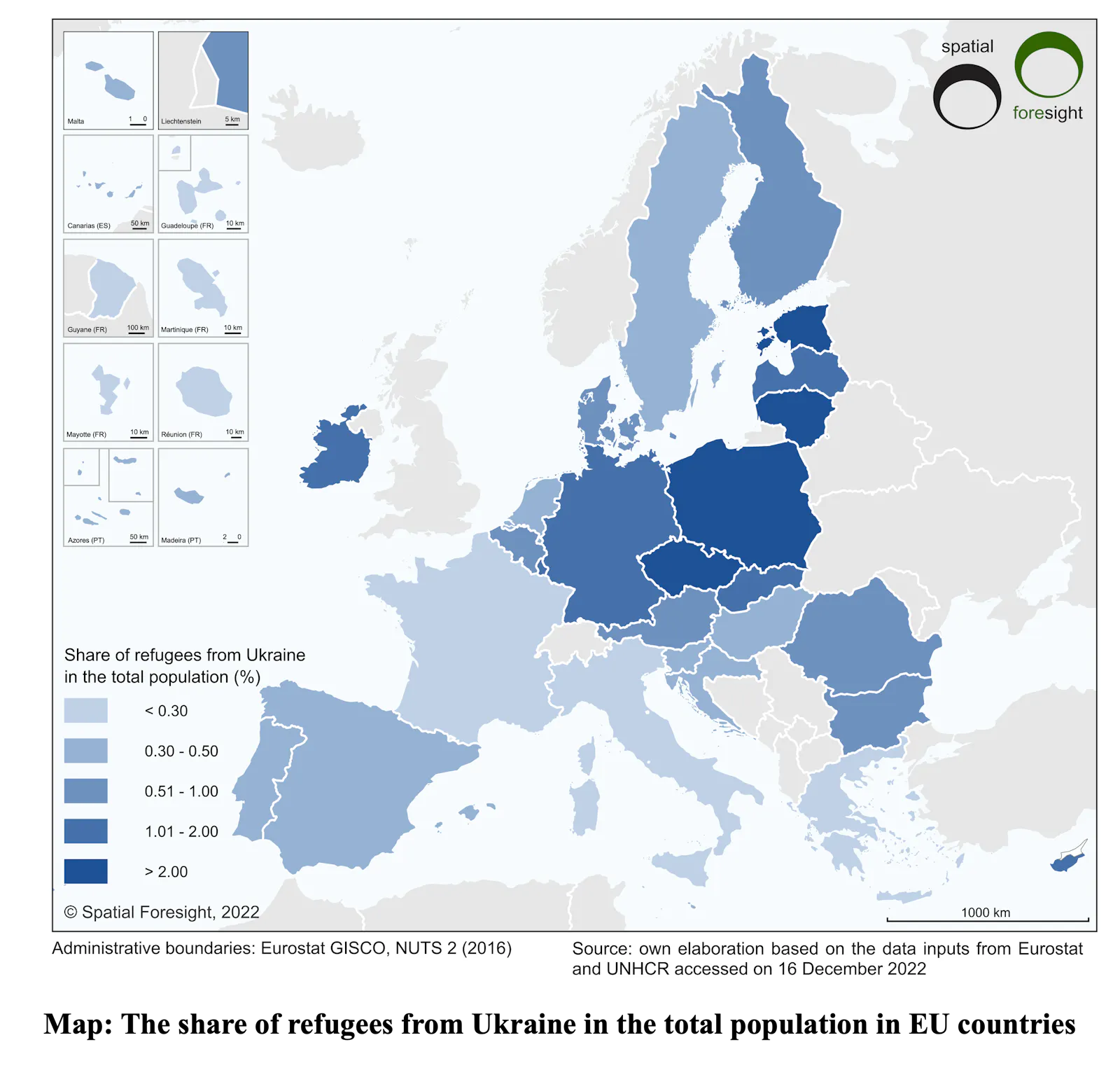Cohesion policy responses to the Ukraine refugee crisis
February 2023
As a result of the Russian invasion of Ukraine, almost one-third of Ukrainians have been forced from their homes, making it one of the largest human displacement crises in the world today. In December 2022 there were more than 7.8 million refugees recorded across Europe and more than 4.7 million refugees from Ukraine registered for Temporary Protection or similar national protection schemes in Europe (UNHCR flash update 36 (Opens in a new window)).
Around 90% of the refugees are women and children and most of them hope to only stay temporarily in their host country. However only 13% expected to return within the next three months following their arrival (UNHCR Regional Intentions Report). For those who plan to stay permanently, a lack of safety and access to basic services as well as inadequate living conditions are the main reasons to not to return to Ukraine.
The war is changing the migratory situation in many EU countries significantly and the distribution of refugees across member states is imbalanced. Poland is playing the most important role in receiving refugees from Ukraine due to the common border and the long-lasting dynamics of labour migration between the two countries. Most of the 7.6 million refugees recorded across Europe, are in Central and Eastern Europe, as recorded in Map 1 which shows the share of Ukrainian refugees of the total population in EU countries as of 16 December 2022.

In transit countries such as Romania, Hungary and Slovakia refugees are only staying for a short duration. On the other hand, in destination countries such as Poland and Czechia, Ukrainian refugees mainly plan temporary stays. The differences in the numbers of refugees are even more pronounced at local and regional level, especially between urban and rural areas.
What are the effects for the receiving countries?
The influx of refugees poses many challenges for areas receiving refugees from Ukraine regarding emergency support, accommodation, medical care, education and employment.
To read this post you'll need to become a member. Members help us fund our work to ensure we can stick around long-term.
See our plans (Opens in a new window)
Already a member? Log in (Opens in a new window)


